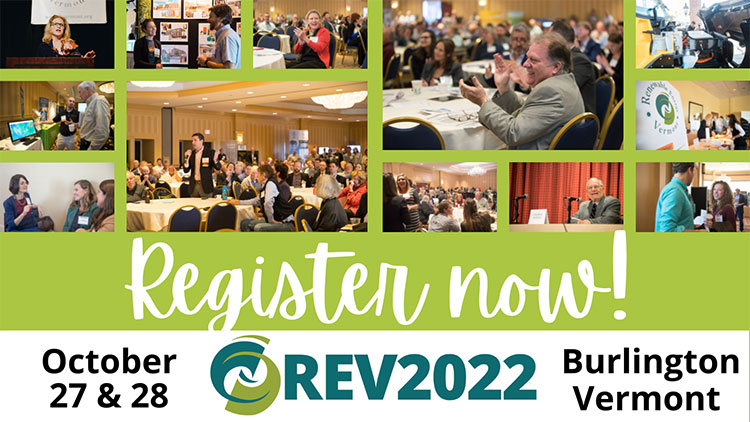 The six-month grace period established by the Vermont Public Utility Commission (“Commission”) is coming to an end on March 13, 2025. The grace period is intended to allow Section 248 Certificate of Public Good (“CPG”) holders to address overdue compliance filings without incurring penalties.[1]
The six-month grace period established by the Vermont Public Utility Commission (“Commission”) is coming to an end on March 13, 2025. The grace period is intended to allow Section 248 Certificate of Public Good (“CPG”) holders to address overdue compliance filings without incurring penalties.[1]
This presents a unique and valuable opportunity for those entities with CPGs to fulfill any outstanding compliance filing obligations without penalty. In addition, the Commission has specifically stated that it will levy heavier fines for outstanding compliance filings following the grace period. We note that the grace period only applies to compliance filing obligations and does not apply to other violations of a CPG.
Key Points:
- Who is affected? Entities with overdue compliance filings required under a permit or other approval issued by the Commission, such as a CPG for an electric generation and storage facility. For net-metering projects, CPG holders or installers of net-metering projects, or the attorney of record should have received a notice of any overdue compliance obligations from the Commission.
- What’s required? Depending on the case, outstanding compliance filings may include:
- Filing notice of intent to construct or operate a project.
- Filing municipal notice forms with proof of recording.
- Updating financial securities or cost estimates in connection with decommissioning funds.
- Certifying completed aesthetic mitigation installations and inspections. The Commission has provided templates for these filings under Commission Rule 5.800.
- Why comply now? The Commission does not typically offer this type of grace period to come into compliance, and CPG Holders should take advantage of it. Furthermore, after the grace period ends, the consequences are likely to be much harsher for projects that had the opportunity to make overdue filings and opted not to. The Commission will determine which cases still have overdue compliance filings, impose strict penalties for noncompliance, and publish a public list of noncompliant entities — including their installer/developer and attorney of record.
Our team at SRH Law is here to help you navigate these requirements. If you need assistance reviewing your compliance obligations or preparing filings, please contact us today.
 Many Vermont businesses are dedicated to social responsibility and put these values into practice by running a charitable sales promotion in support of local charities, especially during the holiday season. When the promotion involves donations that are driven by a purchase of goods or services (such as donating a certain sum per item purchased or donating an item for each purchased item), these campaigns trigger certain legal requirements that vary by state.
Many Vermont businesses are dedicated to social responsibility and put these values into practice by running a charitable sales promotion in support of local charities, especially during the holiday season. When the promotion involves donations that are driven by a purchase of goods or services (such as donating a certain sum per item purchased or donating an item for each purchased item), these campaigns trigger certain legal requirements that vary by state. SRH Law is a proud Megawatt sponsor of the 2024
SRH Law is a proud Megawatt sponsor of the 2024  “Clean” claims are ubiquitous in the beauty industry, as the National Advertising Division (NAD) recently recognized, but there is no single definition of what it means to be a “clean” product. Some companies have been challenged for their “clean” claims, and two recent decisions by the NAD and a federal court have shed some light on what a company needs to support a “clean” claim.
“Clean” claims are ubiquitous in the beauty industry, as the National Advertising Division (NAD) recently recognized, but there is no single definition of what it means to be a “clean” product. Some companies have been challenged for their “clean” claims, and two recent decisions by the NAD and a federal court have shed some light on what a company needs to support a “clean” claim. In a long awaited move, the
In a long awaited move, the 
 Attorneys Vic Westgate and Zoe Sajor are presenting at VBSR’s “Marketing of Vermont/Locally Made Goods: An Origin Story” webinar on September 13, 2021. The presentation will focus on the rules and regulations for applying product marketing claims about Vermont and locally made goods, as well as helpful information in maintaining compliance with such claims. The webinar will also provide perspective on the evolution of the rules regarding the marketing claims in addition to the benefits they provide.
Attorneys Vic Westgate and Zoe Sajor are presenting at VBSR’s “Marketing of Vermont/Locally Made Goods: An Origin Story” webinar on September 13, 2021. The presentation will focus on the rules and regulations for applying product marketing claims about Vermont and locally made goods, as well as helpful information in maintaining compliance with such claims. The webinar will also provide perspective on the evolution of the rules regarding the marketing claims in addition to the benefits they provide. The Agency of Natural Resources (ANR) issued a
The Agency of Natural Resources (ANR) issued a